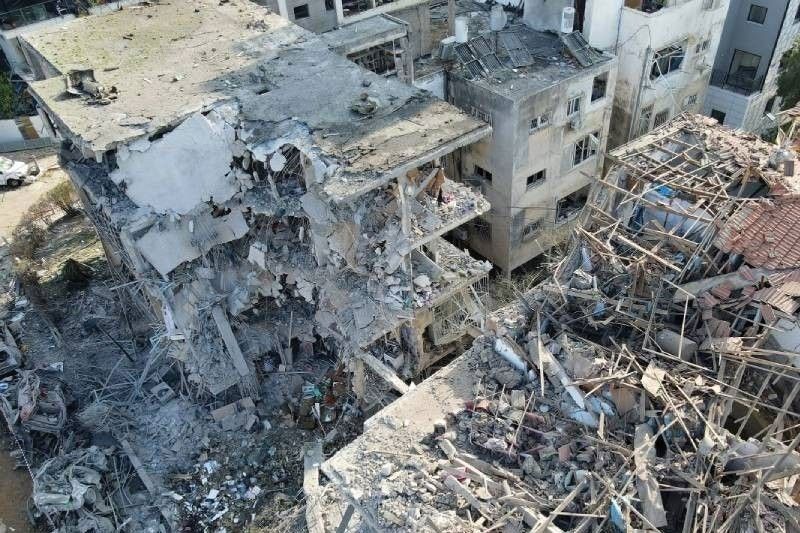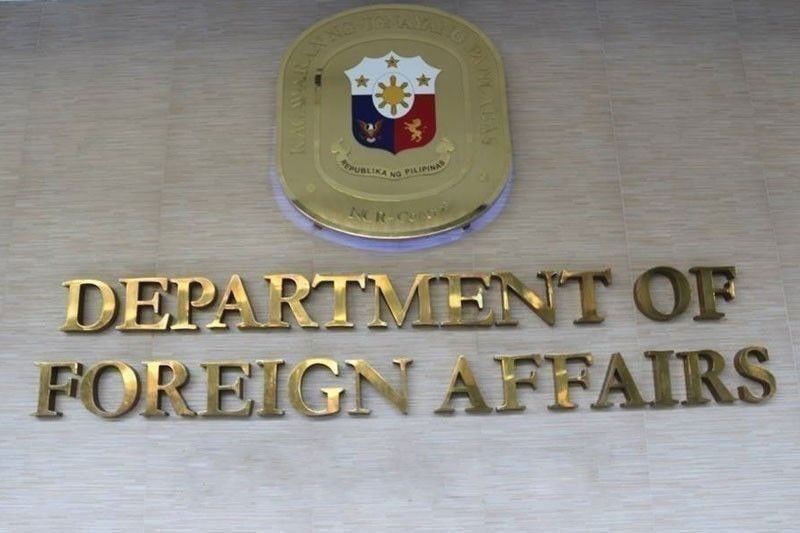
Upgrade to High-Speed Internet for only ₱1499/month!
Enjoy up to 100 Mbps fiber broadband, perfect for browsing, streaming, and gaming.
Visit Suniway.ph to learn
Participants including Philippine health official Enrique Tayag (front 3rd R) take part in the "walk to end AIDS" event to mark World Aids Day in Manila on December 2, 2023. HIV infections are soaring in the Philippines, with experts blaming online dating, poor sex education and conservative attitudes in the deeply religious country for fuelling the spread of the virus.
AFP / Ted Aljibe
MANILA, Philippines — Government workers who discriminate against people living with HIV may face disciplinary action, the Civil Service Commission (CSC) warned.
In a statement on Friday, June 27, the CSC said its latest guidelines, promulgated on May 23, detail the process of investigation and prosecution of discrimination cases against persons living with HIV in government agencies.
“Discriminatory acts that may be committed solely or partially against a person on account of actual, perceived or suspected HIV status are classified into discrimination in the workplace, in a learning institution, and in hospitals and health institutions,” the CSC said.
Examples of discriminatory practices cited include:
- Limiting the travel of people living with or suspected of having HIV
- Restricting their access to housing
- Preventing them from running for public office
- Denying them credit or insurance
- Refusing them burial services
- Subjecting them to bullying
Complaints of discrimination against people living with HIV will follow the 2017 Rules on Administrative Cases in the Civil Service and the Philippine HIV and AIDS Policy Act.
Who can file. These may be initiated by the disciplining authority motu proprio or upon the filing of a complaint by any person. Anonymous complaints won’t be accepted unless the act complained of is of public knowledge or can be verified by documentary evidence.
A valid complaint must include:
- Complainant’s full name and address
- The full name, address and official position of the respondent
- A detailed narration of the facts and allegations
- Certified true copies of supporting documents and affidavits of witnesses, if any
- A certification or statement of non-forum shopping, which is a declaration that the case has not been filed in other courts or venues to seek a more favorable outcome.
Where to file. The complaint doesn’t have to be filed with the CSC or its regional offices only. It can also be filed with the heads of departments, agencies, national government, local government units, state universities and colleges, including government-owned or controlled corporations.
Investigation process
Preliminary investigations are then conducted to determine whether a case exists to issue formal charges, which require either the counter affidavit of the person complained, the legal evaluation of records or a clarificatory meeting with the parties.
The respondent will receive a show-cause order requiring them to explain why an administrative case should not be filed against them.
The preliminary investigation typically wraps up within 20 days but may take longer if needed. After the inquiry, a report with findings, recommendations and complete documentation will be submitted to the disciplining authority.
The disciplining authority, then, has the power to decide whether a formal charge or a notice of charge should be issued. No motions to dismiss or reconsideration or extension will be entertained at this point.
Once a formal charge is issued, the investigation should be resolved within 30 days, unless extended. Hearings will be held throughout the process, and it will be up to the disciplining authority to decide what penalty should be imposed.
The CSC said the latest guidelines are part of its initiatives to promote “safe and healthy working environments” for government workers.
"The new rules shall apply to all officials and employees in all branches and agencies of the government, including national government agencies, local government units, state colleges and universities, and government-owned and controlled corporations with original charters," the statement read.
Surge in HIV cases
The Department of Health recently reported a 44% year-on-year increase in confirmed HIV cases in April, with most cases involving the youth.
HIV, or human immunodeficiency virus, weakens the immune system and is mainly spread through unprotected sex or contact with infected bodily fluids. While incurable, it is manageable through antiretroviral therapy. Preventive options like PrEP and PEP are also available.
The DOH said free consultations, testing and treatment are offered at its hubs, with therapy costs covered by PhilHealth.
Here's where to find the HIV treatment hubs and care facilities across the country.

 6 hours ago
1
6 hours ago
1



